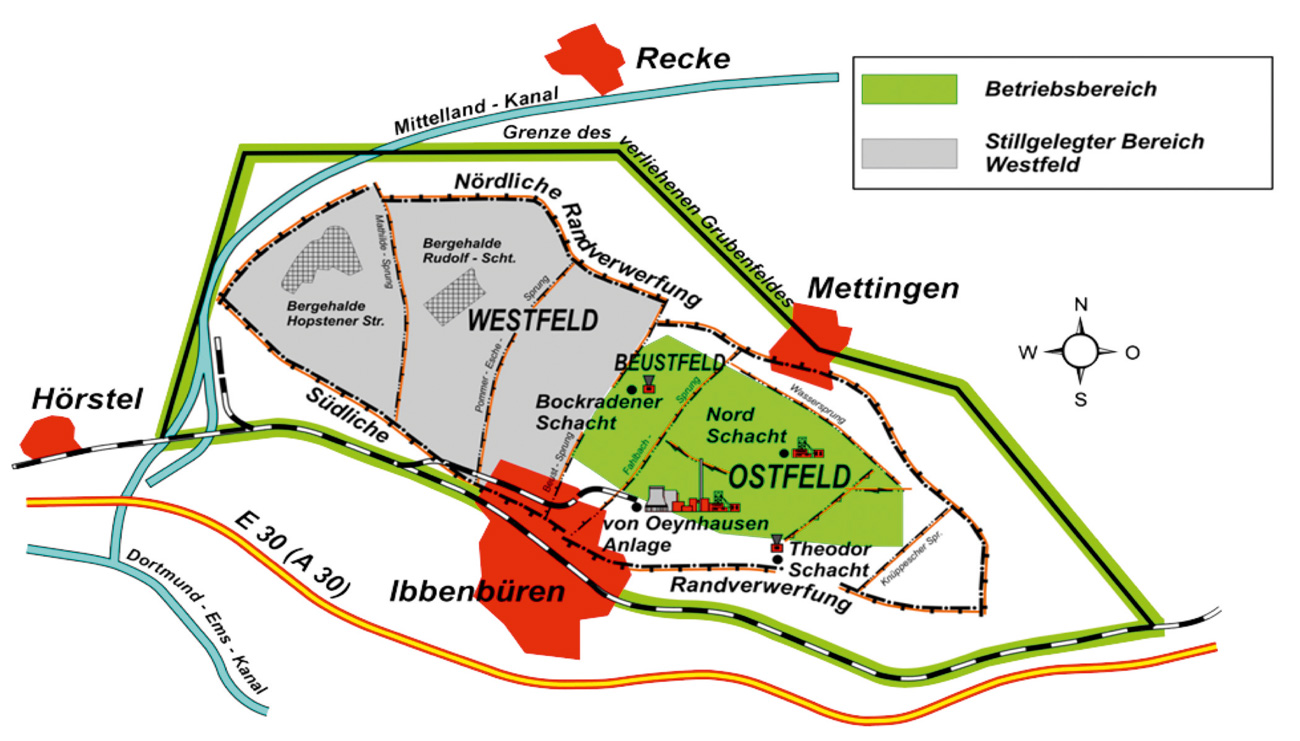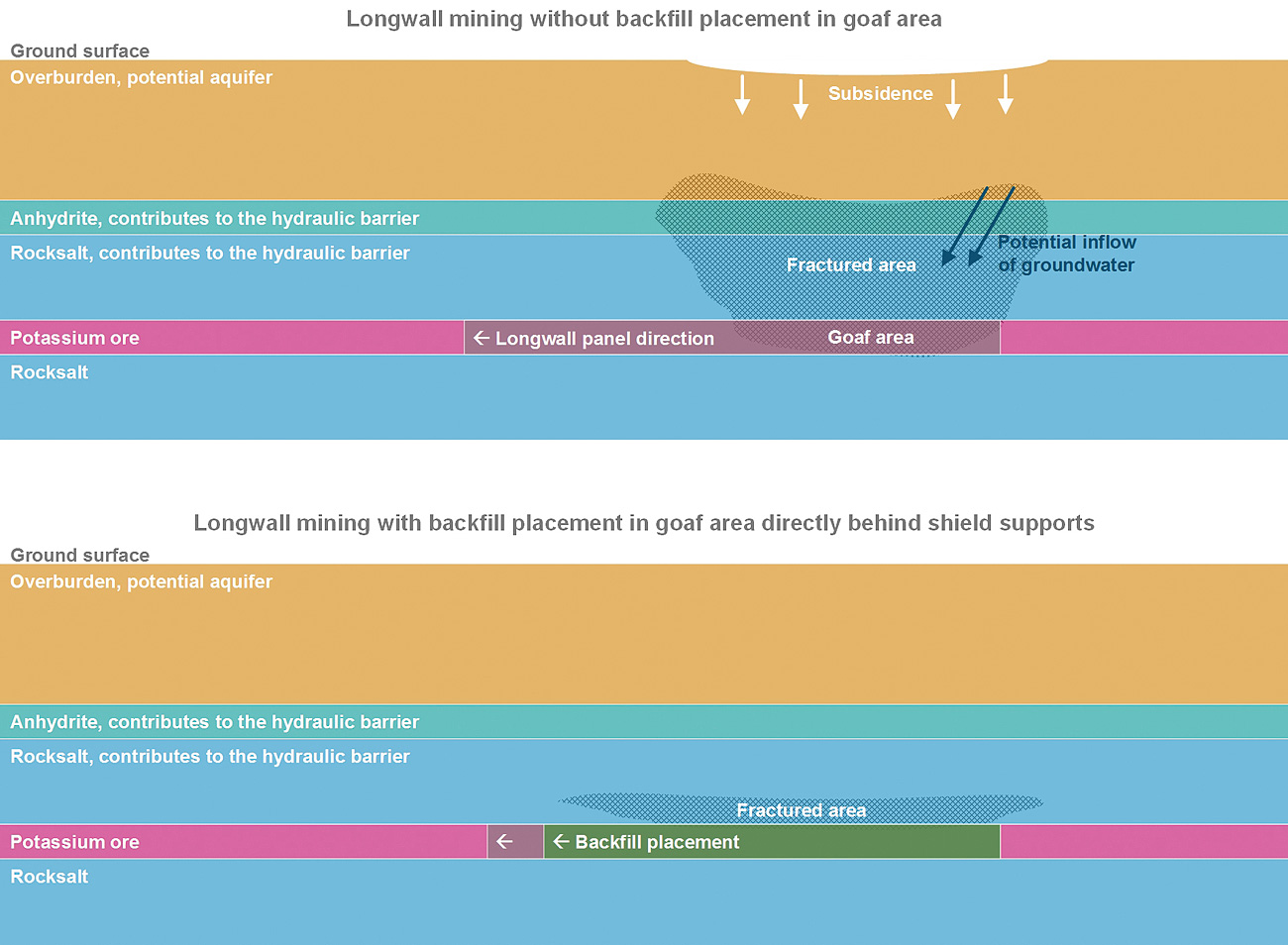Mining and the processing and refining of extracted resources is of enormous importance for our day-to-day lives and these activities will continue to offer massive potential for the prosperity and wellbeing of society. However, it must also be said that mining operations have a huge influence on both the natural and the social environment. The awareness of this and the manner in which this influence-cum-interference is managed are the factors that distinguish a responsible mining industry. Only by taking account of the ecological, economic and social requirements will it be possible, both now and no doubt increasingly in the years ahead, to arrive at a status of sustainable development. This issue of Mining Report Glückauf is therefore devoted to this topic and is headed “Responsible Mining”.
The first paper presents various thoughts and ideas on sustainable mining practice and describes ways …
Read moreWith my best regards // Mit freundlichem Glückauf
Dipl.-Ing. Andreas-Peter Sitte
Chief Editor Mining Report Glückauf, Essen
Responsible Mining

Fig. 1. Modelled deposit with indium grades and sampling points. // Bild 1. Lagerstättenmodell mit Indiumgehalten und Probenahmepunkten. Source/Quelle: TUC
Authors: Prof. Dr.-Ing. Oliver Langefeld, Angela Binder M. Sc., Institut für Bergbau der Technischen Universität (TU) Clausthal, Clausthal-Zellerfeld
Read moreMining Has Never Been More Important – So Let’s Mine with Principles
Germany played a leading role in planning for a low-carbon economy, introducing the Energiewende policy five years before the 2015 Paris Agreement on climate change. Energiewende helped catalyse the renewable energy market and the growing electrification of economies around the world. Helping the world decarbonise is one important role that mining will play in the coming decades. The other driver of demand for mined products is population growth. With the increasing demand for mineral resources societal demands will grow too. The International Council on Mining and Metals (ICMM), London/UK, proclaims ten principles, which form the core of a sustainable development framework. ICMM´s members are committed to integrating sustainable development in their corporate strategy and decision-making process, and to pursue continual improvement in environmental performance issues, such as water stewardship, human rights, and financial transparency, as well as climate change. ICMM recently launched a social media campaign…Author: Tom Butler, CEO of the International Council on Mining and Metals (ICMM), London/UK
Read moreCertification of Responsible Mining Practices and Mineral Supply Chains
Fhe term “seal jungle” shapes the debate on sustainability initiatives and their standards in various sectors of the economy, such as agriculture or the textile industry. But what about standard initiatives for mineral raw materials? A German research consortium from 2015 to 2017 has dedicated itself to this topic, including the Federal Institute for Geosciences and Natural Resources (BGR), Hanover. The following article discusses the background, objectives, and differences between sustainability initiatives in the mining sector and the problem of standard diversification. Greater cooperation and harmonization of standards…Author: Karoline Kickler M. Sc., Bundesanstalt für Geowissenschaften und Rohstoffe (BGR), Hannover
Read moreThe Hard Coal Mining at Ibbenbürener Mining District in 2018

Fig. 1. Ibbenbürener Carboniferous Horst, present and former operating areas. // Bild 1. Ibbenbürener Karbonhorst, aktive und ehemalige Betriebsbereiche. Source/Quelle: RAG Anthrazit Ibbenbüren GmbH
Author: Dr.-Ing. Heinz-Werner Voß, Sprecher der Geschäftsführung, RAG Anthrazit Ibbenbüren GmbH, Ibbenbüren
Read moreHigh Yield Potassium Extraction Reducing Impact on Nature (HYPERION) – a Vision into the Future of Global Potassium Extraction and Processing

Fig. 1. Traditional longwall mining versus longwall mining applying HYPE technology (not to scale). // Bild 1. Klassischer Strebbau im Vergleich mit Strebbau unter Anwendung der HYPE-Technologie (nicht maßstabs-gerecht). Source/Quelle: K-UTEC
The global importance of the potassium extraction and processing industry has been significant for over a century and will continue to be in future. Potassium is a vital resource for intensive agricultural land use and as such essential to improve food stock independence and localised food production. For the European Union (EU), the survival of the industry is crucial to retain independence from the main potash producing countries Canada, Russia and Belarus.
A sustainable continuation of the potassium industry that takes the general public view into concern should be established. Its typical challenges, such as risk of surface subsidence, pollution of surface and ground water as well as complex mine abandonment, should be addressed in a new vision of environmentally friendly yet economical potassium extraction and processing. In the methodology to be developed, simultaneously mining and backfilling of underground openings is a key factor, achieving highly efficient …
Authors: Tobias Pinkse M. Sc., Robert Quensel M. Sc., Dr.-Ing. Alexander Lechner, Dipl.-Chem. Dittmar Lack, Dr. Axel Stäubert, Dr. Heiner Marx, K-UTEC AG Salt Technologies, Sondershausen/Germany
Read moreEnvironmental and Community Impacts of Mining
Local impacts of mining are various and can affect the environment, economics, politics and cultural concerns. All together influence the well-being and every-day life of the local people. Among negative impacts of mining, there are also positives, such as economic growth and wealth brought to the region. This article discusses both, positive and negative effects of mining businesses. The information given refers to a defined mining project in Eastern Finland, the Kylylahti multi-metal mine and the investigation of its influences executed on behalf of the Finnish Funding Agency for Innovation with the project “Preconditions and Tools for Social License to Mine”.Author: Tuija Mononen, DocSocSci, PhilLic, University Researcher, Dept. of Geographical and Historical Studies, University of Eastern Finland, Joensuu/Finland
Read moreAustralia, Leading the Practice in Sustainable Mining

Fig. 1. The Australian sustainable mining landscape. // Bild 1. Australisches Modell für nachhaltigen Bergbau.
Author: Assoc. Prof. Michael Hitch Ph. D., P. Eng. P. Geo., Director and Mitsubishi Chair in Sustainable Mining, School of Mining Engineering, University of New South Wales (UNSW), Sydney/Australia
Read moreMining-Induced Generation of Submicron Particles and their Application in Rockburst Hazard Assessment
Researches aimed at gaining an insight into the processes of deformation and failure of materials on a submicron scale that have become of increasingly higher priority in recent years. Destruction of rocks is the integral part of mineral mining processes and directly connected with the generation of submicron size particles at any stage of production. Generation of submicron particles during deformation and failure of rocks exerts aggravating effect on the environment. At the same time, from the experience of laboratory testing, this effect can be used in stress state control in rock masses both under quasi-static and dynamic loading. The accomplished investigation results are the basis for elaboration of a method to monitor and predict hazards associated with out-of-control failure in rock mass areas prone to dynamic response to strata pressure. The basic research into conditions for generation of submicron particles …Authors: Prof. Dr.-Ing. Kliment N. Trubetskoy, Dr.-Ing. Sergey D. Viktorov, Dr.-Ing. Alexander A. Osokin, Institute of Comprehensive Exploitation of Mineral Resources (IPKON), Russian Academy of Sciences, Moscow
Read more

















